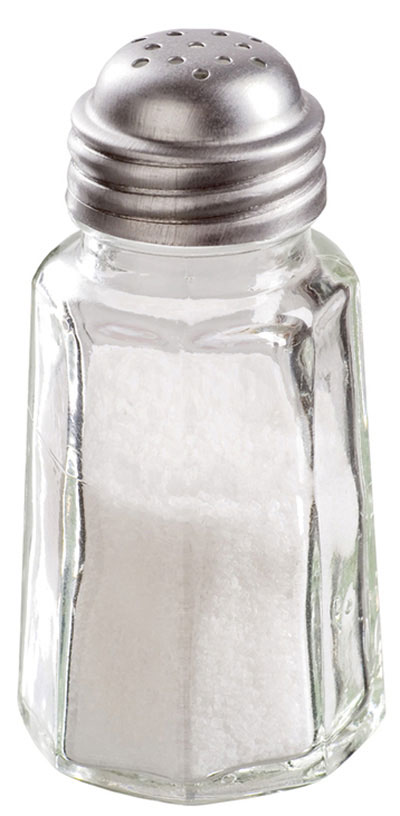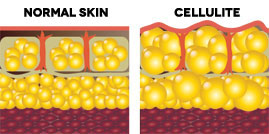Health Dangers of Excess Salt
It is not that salt is a bad thing, but when we eat it refined and in such large quantities, it can wreak havoc in our body.
- Learn more about salt: The kind we need & the kind we don't
- Sodium content in natural foods
- Retrain your taste buds with these helpful tips
 On a processed food diet, the average American consumes close to 4,000 mg of sodium each day, 20-30 times higher than the body was designed to handle. In such quantities, salt upsets the fluid balance of the body, debilitates the circulatory system, and constricts the blood vessels. This, in turn, can cause and aggravate a number of health conditions including:
On a processed food diet, the average American consumes close to 4,000 mg of sodium each day, 20-30 times higher than the body was designed to handle. In such quantities, salt upsets the fluid balance of the body, debilitates the circulatory system, and constricts the blood vessels. This, in turn, can cause and aggravate a number of health conditions including:
- Edema
- Obesity
- Angina
- Cellulite
- Hypertension (increasing the risk of heart disease, stroke, and congestive heart failure)
- Kidney failure
- PMS
- Ulcers
- Acne
- Nerve degeneration
- Cancerous tumors
Add this to an overworked liver and kidneys, and it becomes easy to see why excessive salt alone can contribute to bodily degeneration. It threatens the cellular integrity and health of every one of our 75 trillion cells.
|
Most Americans walk around in a perpetual state of dehydration from the sodium and lack of water content in the processed foods they eat.
When the body takes in excess salt, it cries out for more water to dilute the salt crystals, and the body attempts to eliminate the excessive sodium via the liver and kidneys. As more and more sodium enters the body due to excessive salt in our diet, salt is retained in storage areas throughout the body, i.e. our cells. More water is also retained to try to neutralize the continual sodium excess, and the body becomes overtaxed and "waterlogged." Just 1 oz. of excess salt in the body retains 3 quarts of water (or 6 lbs. of excess bodily water and fluids!). Cells bulge and begin to lose their elasticity, contributing to cellulite. Our body becomes bloated, as evidenced by puffy eyes, hands, legs, and feet.
The Sodium/Potassium Factor
Sodium and potassium work closely together to maintain a delicate balance within the cells of the body, ensuring that nutrients are taken into the cell and waste is removed. When the body becomes waterlogged, this balance is damaged and waste cannot effectively be removed, creating cellular congestion. Potassium levels fall, leading to fatigue and irritability. The cells in our skin are contained in a fibrous mesh, and when these cells become waterlogged from too much sodium, they expand and damage this fibrous mesh. As a result, our skin becomes less elastic and more prone to conditions such as cellulite.

When we take a look at the ratio of sodium to potassium in refined foods, the sodium content is typically far higher. In comparison, fresh fruits and vegetables are naturally either higher in potassium than sodium, or found in a similar quantity.
When the potassium/sodium ratio is altered to be heavily disproportionate towards sodium, a degeneration within the body occurs and the door opens for disease. A severe enough potassium deficiency caused by excessive salt intake can cause the muscles, valves, and arteries of the cardiovascular system to adapt by shrinking, calcifying, and scarring tissue and setting the state for heart failure.
When we start a healthy diet, we often lose a dramatic amount of weight in the first 2 weeks. This is due to the excess water that the body was storing which it now releases as the sodium balance normalizes. Even though the weight loss is largely water and not fat, don't downplay the loss and say "oh, it's just water" - ridding the body off all this excess water is just as important as fat loss!
RELATED ARTICLES
- Salt
- Health dangers of excess salt
- Sodium in natural foods
- Retraining your taste buds
- The Dirty Dozen: What they are & why you should avoid them
- What are processed and refined foods
- Additives & chemicals in our food
- Get off the diet merry-go-round
- Healthy food choices for children
- Healthy food choices for pets
- The FDA: Failure to protect our food on a mass scale
- Food pyramids & food politics



